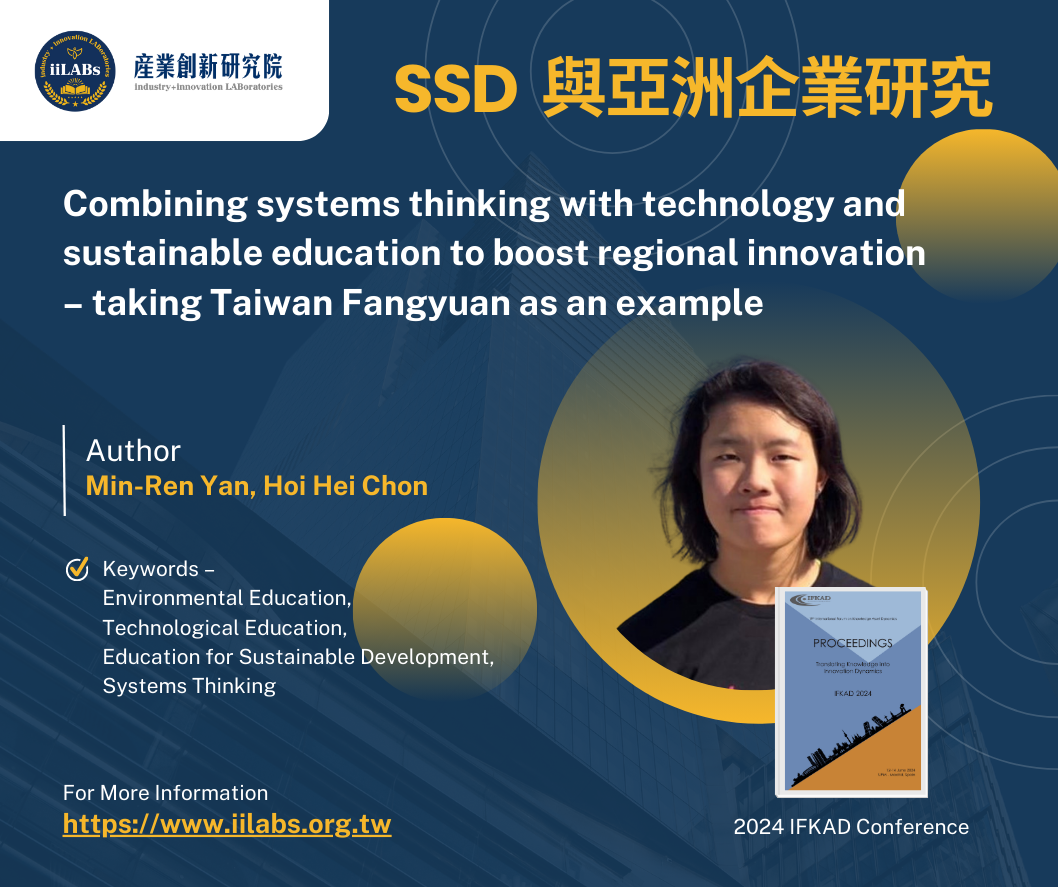


📙論文名稱:
Combining systems thinking with technology and sustainable education to boost regional innovation – taking Taiwan Fangyuan as an example
📙刊登處:2024 IFKAD國際學術研討會
📙作者姓名: Min-Ren Yan, Hoi Hei Chon
論文摘要:
In 2015, the United Nations set forth the 17 Sustainable Development Goals (SDGs) as a global call to action to end poverty, protect the planet, and ensure prosperity for all by the year 2030. These goals cover a broad spectrum of areas including education, healthcare, gender equality, clean water, climate action, and more. The overarching aim of the SDGs is to address the interconnected challenges facing the world today and provide a blueprint for a sustainable and equitable future.
The focus of this specific research project is on the Fangyuan region of the Changhua Coastal Wetland in central Taiwan. This area is of particular interest due to its unique ecological significance as a national wetland and its potential for sustainable development through eco-tourism and education initiatives. By leveraging the natural beauty and resources of the wetland, the goal is to create economic opportunities for the local community while promoting environmental conservation and awareness of the SDGs.
The research methodology employed in this project involves a combination of case study analysis and systems thinking. The case study involves an in-depth examination of the Fangyuan Wetland region, including its ecological resources, economic dynamics, and community characteristics. This detailed study will provide insights into the current challenges and opportunities for sustainable development in the area.
In parallel, the application of systems thinking will enable a holistic understanding of the complex interactions and feedback loops within the ecosystem of the Fangyuan region. By adopting a systems perspective, the research aims to identify leverage points and sustainable strategies that can drive positive change and development in the area.
Key challenges facing the Fangyuan region include the need for a balance between conservation and development, as well as the issue of outmigration leading to a decline in the local population. By focusing on education and eco-tourism as drivers of sustainable development, the research project seeks to address these challenges by engaging the local community, attracting younger generations back to the region, and fostering dialogue and collaboration among stakeholders.
Ultimately, the goal of this research project is to explore innovative solutions that can support economic growth, environmental conservation, and community development in the Fangyuan region, while also promoting awareness and action towards the UN SDGs. Through a comprehensive and detailed analysis, the project aims to contribute valuable insights that can inform sustainable development initiatives in the region and inspire similar efforts globally.